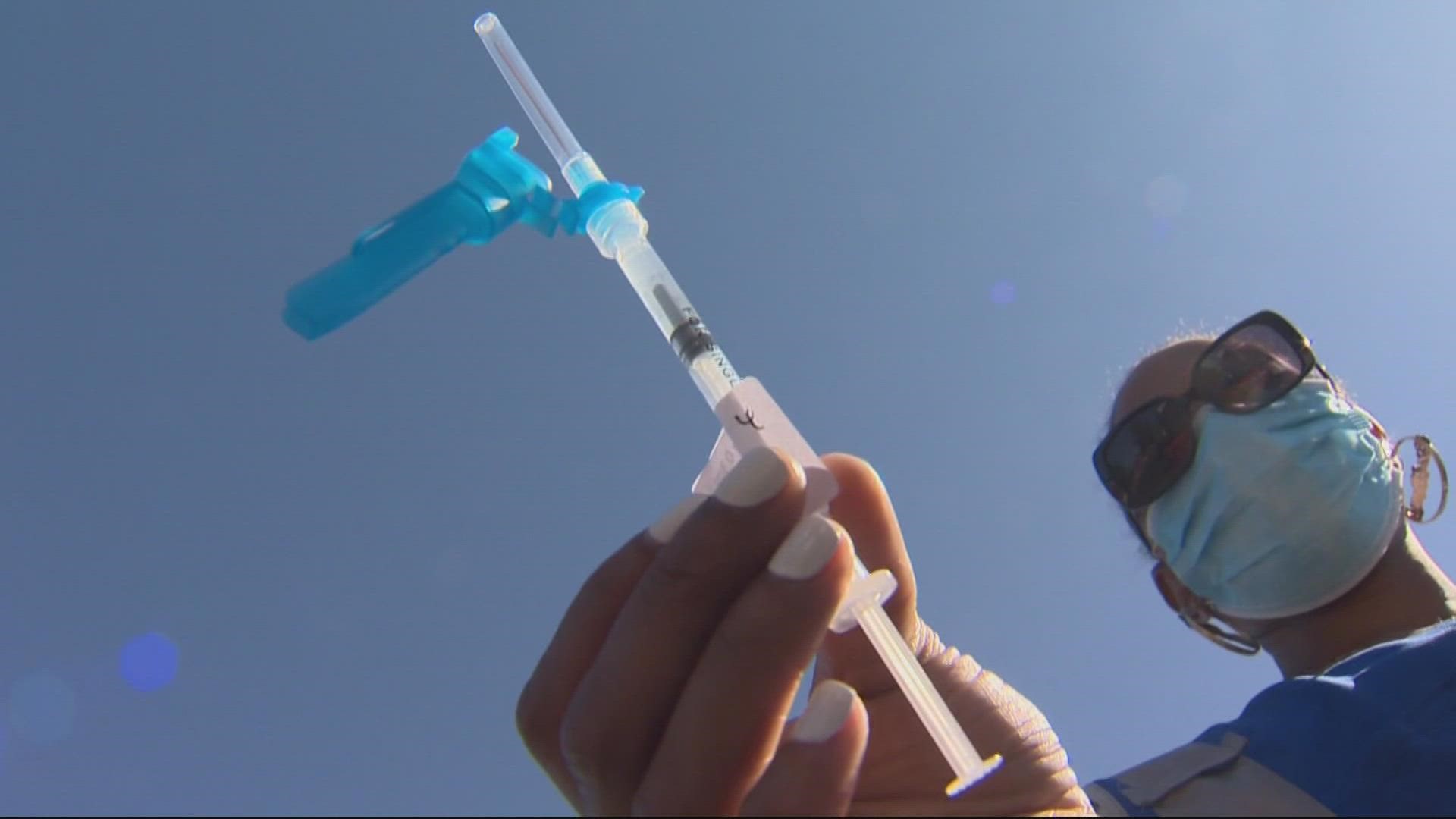PORTLAND, Ore. — The University of Oregon (UO) announced this week it will be requiring booster shots for students and employees who go to campus in person.
The university said details such as deadlines will be announced as soon as they’re finalized. The booster requirement will be in addition to UO's vaccine requirement that has been in place since the start of fall term.
KGW checked in with a number of other colleges and universities to see if any others had a booster requirement.
Oregon State University, Portland State University, University of Portland, Oregon Institute of Technology and Southern Oregon University have not made a decision and currently have no booster requirement in place.
Portland Community College isn’t requiring vaccines, so it’s not requiring a booster either.
While Oregon State (OSU) hasn’t officially made a decision yet, Steve Clark, vice president for university relations and marketing, said it’s likely the institution will also eventually require boosters.
“Over the next week or so we'll continue to evaluate information being provided by the CDC, by Oregon Health Authority and by local health authorities in the counties in which we operate. We'll make judgments based upon guidelines and the guidance provided by science and health authorities,” said Clark.
Clark said the vast majority, more than 93%, of students and employees are fully vaccinated. He said nearly 100% of students and employees have complied with the university’s overall vaccination requirement. The school’s vaccination requirement allows for federal exemptions. For students and employees who don’t comply, weekly testing is required.
Clark said the OSU community is encouraged to get the booster before holiday gatherings and before coming back to campus on Jan. 3.
Meantime, KGW's Seattle sister station reported the University of Washington will be going virtual for at least the first week of the winter quarter due to concerns around the omicron variant.
A spokesperson for Willamette University said the school will enforce a two-week “quiet period” where students will be encouraged to limit in-person interaction. Many classes will also move online during the two-week period.

